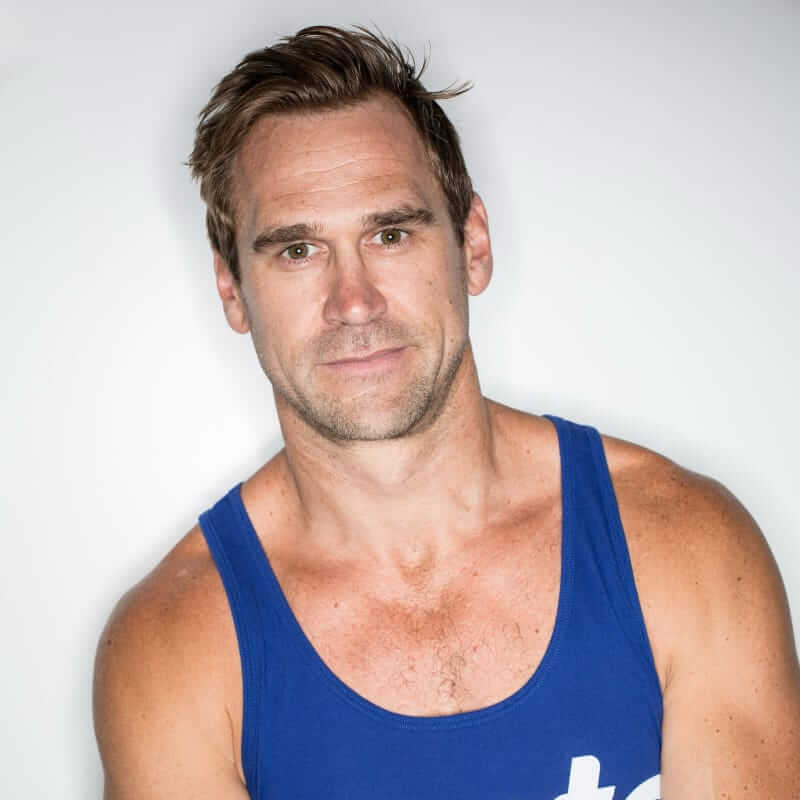
The Training Truth We Don’t Talk About
How to get back on track
when you slip up
Maybe you’ve eased up on that classic New Year’s resolution to get back in shape. Maybe you overdid it on the snacks and beer during the Super Bowl. Or you could've just fallen out of your usual exercise routine ... it happens to the best of us. Whatever the reason, you now feel a bit softer, a little weaker and a lot less motivated.
That's pretty much how I was feeling—stuck in an all-or-nothing mindset when it comes to fitness habits. It's easy to stay motivated when you're consistent with your diet and exercise. But if you step off the proverbial treadmill for too long, it can feel nearly impossible to get back on. “Did I just screw up all the progress I've made?” I'll ask myself over and over again.

Trainer Austen Gravett before the holidays and after a vacation treating himself.
But there's a training truth that doesn't get talked about enough—one that trainer Austen Gravett brought to my attention after he admitted that he had indulged over the holidays (see the photos to the right). Gravett specializes in helping high-performing professionals get in shape without following a rigid training plan. His coaching focuses on results but he's also realistic about life getting in the way sometimes.
Advertisement
“Having some bad days won't derail your overall progress,” he says. “If anything, you'll be surprised how fast you rebound. In fact, this is incredibly important from a mental health standpoint—although it may seem counterproductive, it's like taking one step backward, but two steps forward.”

Trainer Luke Milton
Luke Milton, the Hollywood trainer and founder of Training Mate, agrees. His program emphasizes that physical health, social health and mental health are all part of the healthy lifestyle we're striving for. “So if you're enjoying something that isn't traditionally 'healthy,' just make sure it's adding to your social or mental health,” he says. “I truly believe in moderation. It's important to enjoy life and whatever you do, don't beat yourself up for over indulging every now and again, results are achieved with consistency.”
Gravett says he's been on both sides of the equation. “For years, I used to be very strict with everything. I'd put my diet and training above all else because I thought that when I reached my goals, I'd be happier and essentially have a better life,” he remembers. “Unfortunately, I never felt like I could enjoy the present moment or was happy with my life because I was always at the mercy of my diet and training.” Now, he understands that the give-and-take is much more sustainable and provides room for relaxation. “Don't get me wrong, I'm beyond proud of where I am today,” he says. “But what I'm most proud of is being able to let loose and bounce back after falling down.”
Because you will bounce back. But you might not be able to pick up right where you left off. A recent study published in the Journal of Rehabilitation Medicine, for example, found that taking a break from physical activity for just two weeks can result in a rather substantial reduction of muscle strength and mass. The goal is to fix the body, not break it.
Milton says the number one mistake he sees with clients trying to get back into exercise is going too hard at the start, then losing interest or burning out. “Start back with an activity you enjoy and I'm obviously a big believer in finding a training mate—someone you enjoy hanging around with and will help you with accountability.”
The bottom line: Your body, especially if you've been mildly consistent with working out and eating right in the near past retains a good amount of muscle memory. Far more than we might think. So just start. The sooner you begin, the faster you'll see results return. Just heed the trainers' advice and listen to your body as you go: You'll want to push it so you're gradually challenged, but not stressed. That's just what I'll be doing as I get up to work out tomorrow morning.
150
The number of minutes of exercise a healthy adult should be working their way toward each week, according to the Department of Health and Human Services. That breaks down to 30 minutes, five times a week.





